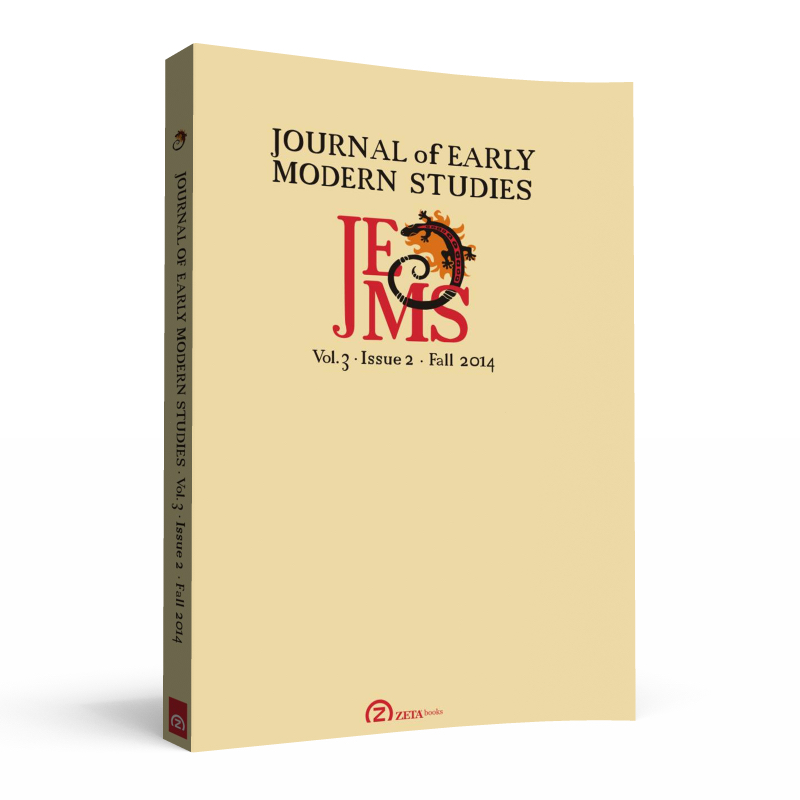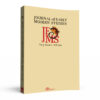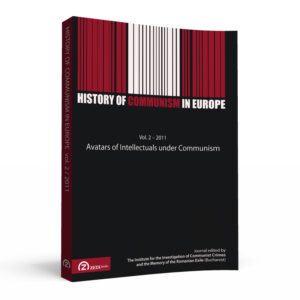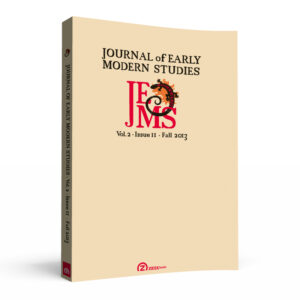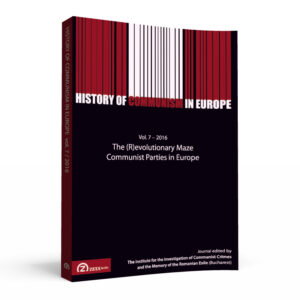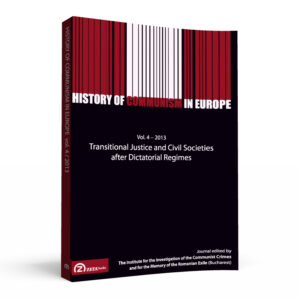Articles
PATRICK BRISSEY, Rule VIII of Descartes’ Regulae ad directionem ingenii
- Abstract. On the developmental reading, Descartes first praised his method in the first instance of Rule VIII of the Regulae ad directionem ingenii, but then demoted it to provisional in the “blacksmith” analogy, and then found his discrete method could not resolve his “finest example,” his inquiry into the essence and scope of human knowledge, an event that, on this reading, resulted in him dropping his method. In this paper, I explain how Rule VIII can be read as a coherent title and commentary that is a further development of the method of the Regulae.
LYNDA GAUDEMARD, L’omniprésence de Dieu. Descartes face à More (1648–1649)
- Abstract : In this paper, I shall suggest that, what Descartes supported in his letter to More of August 1649, when he claimed that God’s essence might be present everywhere, was not that God can’t exist without being extended, i.e. being omnipresent, but that God has necessarily the disposition to be extended. If my interpretation is correct, then the claim that God’s essence is omnipresent is consistant with the thesis that God is omnipresent ratione potentiæ.
Tamás Pavlovits, L’interprétation de l’infini pascalien et cartésien dans La Logique ou l’Art de penser
- Abstract: The authors of the Logique ou l’Art de penser, Arnauld and Nicole, declare that their work is based on the thinking of Descartes and Pascal. However, it is not easy to reconcile the differences between the two thinkers. Several commentators claim that the aim to harmonize produces a tension in the Logique. In this paper I analyse how the Cartesian and Pascalian conceptions of the infinite are being harmonised by Arnaud and Nicole. I argue that they are able to reconcile the differences of Descartes’ and Pascal’s notions of the infinite in an apologetic context. Although Pascal and Descartes use and define the infinite differently, they agree that the infinite is evident and incomprehensible at the same time. Arnauld et Nicole use this characteristic of the infinite in an apologetic context. The basis of my analysis lies in three axioms that the Logique names “axioms of belief.” In these axioms the infinite functions to limit the uses of reason and to show with evidence that something exists beyond the borders of rational knowledge.
Karen Pagani, To Err is Human, to Forgive Supine: Reconciling (and) Subjective Identity in Rousseau’s Émile et Sophie, ou Les Solitaires
- Abstract: This essay interrogates the degree to which the views on anger and reconciliation expressed in Les Solitaires relate to Rousseau’s thoughts on subjectivity and, especially, the radically dissimilar psychological experiences of the individual-acting-as-such and that of the citizen qua citizen. I argue that the conflict and the tragedy with which both Émile and Sophie are confronted in Les Solitaires is cast by Rousseau as a necessary step in their acquisition of a more self-conscious moral perspective that enables both protagonists to articulate and reconcile their bifurcated identities as individuals and as citizens. Through an analysis of Émile’s deliberations concerning the appropriateness of forgiveness in the case of Sophie’s infidelity, I suggest that the very sophistication of the protagonists’ reflections on their unfortunate circumstances reveals their acute awareness as to the difficulties and alienation that inexorably results from the social contract and, it follows, from all contracts that are derived therefrom (particularly that of marriage). As such, the text must be read as a further development upon the principles of education established in Émile, ou de l’Education, as well as a devastating and, for Rousseau, out of character condemnation of marriage.
SAMUEL KAHN, Defending the possible consent interpretation from actual attacks
- Abstract: In this paper, I defend the possible consent interpretation of Kant’s formula of humanity from objections according to which it has counterintuitive implications. I do this in two ways. First, I argue that to a great extent, the supposed counterintuitive implications rest on a misunderstanding of the possible consent interpretation. Second, I argue that to the extent that these supposed counterintuitive implications do not rest on a misunderstanding of the possible consent interpretation, they are not counterintuitive at all.
Translation
John Toland, “On the Manner, Place and Time of the Death of Giordano Bruno of Nola”, translated from the Latin and annotated by Bartholomew Begley
- Abstract: The papers offers a translation, with introduction and explanatory notes, of John Toland’s 1709 letter in Latin to Baron Hohendorf relating to his discovery of Caspar Schoppe’s eyewitness account of the trial and execution of Giordano Bruno in Rome in 1600. Toland, referring to Bayle’s Dictionnaire, argues that this discovery removes any doubt about the manner of Bruno’s death. Toland points out where Schoppe and the inquisitors had misunderstood or wilfully misrepresented Bruno, and then offers a short exposition and critique of some of Bruno’s ideas.
Review Article
Evan R. Ragland, Between Certain Metaphysics and the Senses: Cataloging and Evaluating Cartesian Empiricisms [Mihnea Dobre and Tammy Nyden (eds.), Cartesian Empiricisms, Studies in the History and Philosophy of Science 33, Dordrecht: Springer, 2013]
Book Reviews
- Bernard Joly, Descartes et la chimie, Paris: Vrin, 2011 (Fabrizio Baldassarri)
- Sophie Roux, L’Essai de logique de Mariotte: Archéologie des idées d’un savant ordinaire, Paris: Classiques Garnier, Histoire et Philosophie des Sciences 2, 2011 (Andrea Strazzoni)
- Andrea Sangiacomo, L’essenza del corpo: Spinoza e la scienza delle composizioni, Hildesheim, Zürich, New York: Georg Olms Verlag, 2013 (Oberto Marrama)
- John Toland, Letters to Serena, edited with an introduction by Ian Leask, Dublin: Four Courts Press, 2013 (Charles T. Wolfe)
ISSN: 2285-6382 (paperback)
ISSN: 2286-0290 (electronic)
ISBN: 978-606-8266-88-6 (paperback)
ISBN: 978-606-8266-89-3 (electronic)

